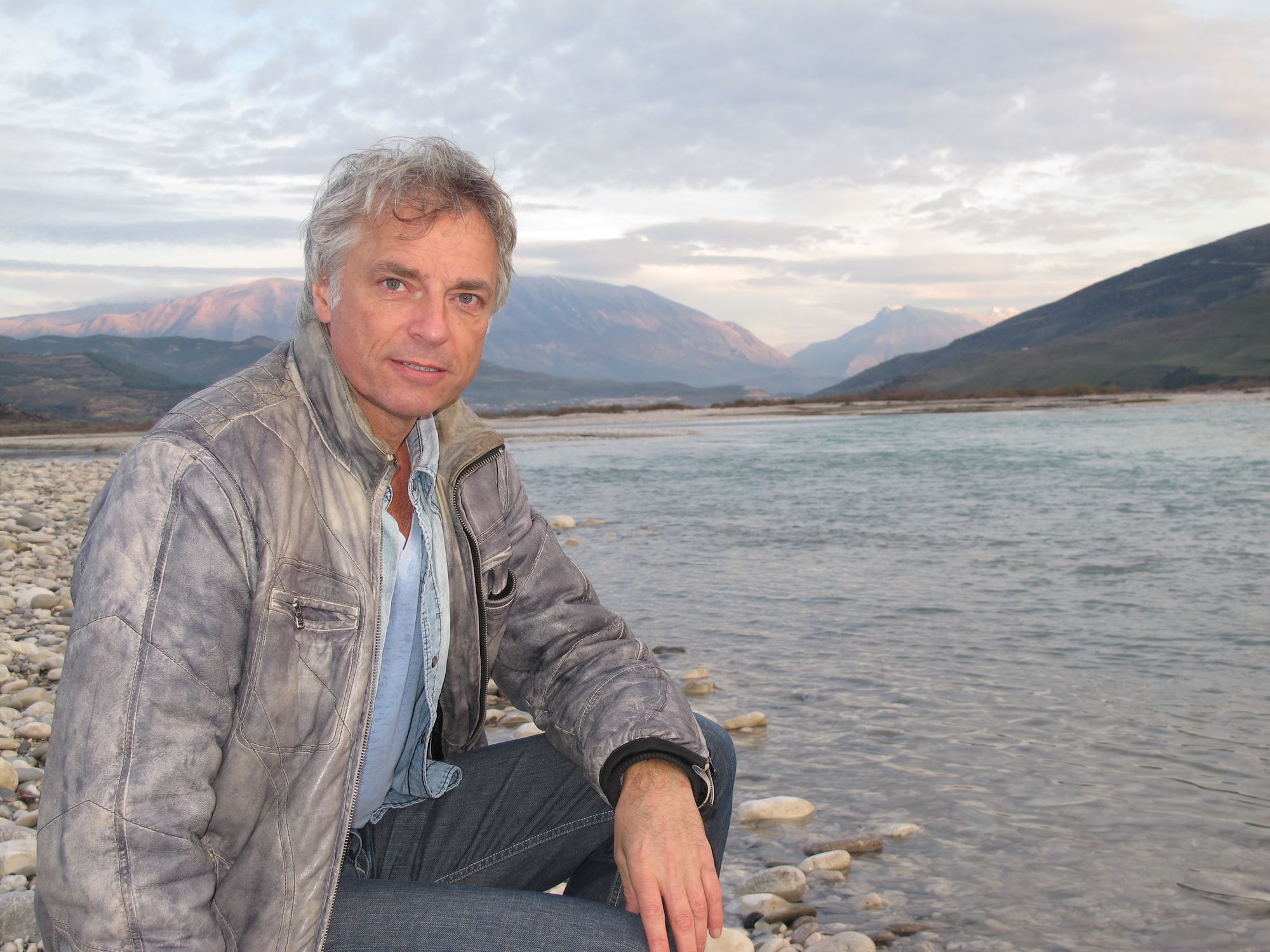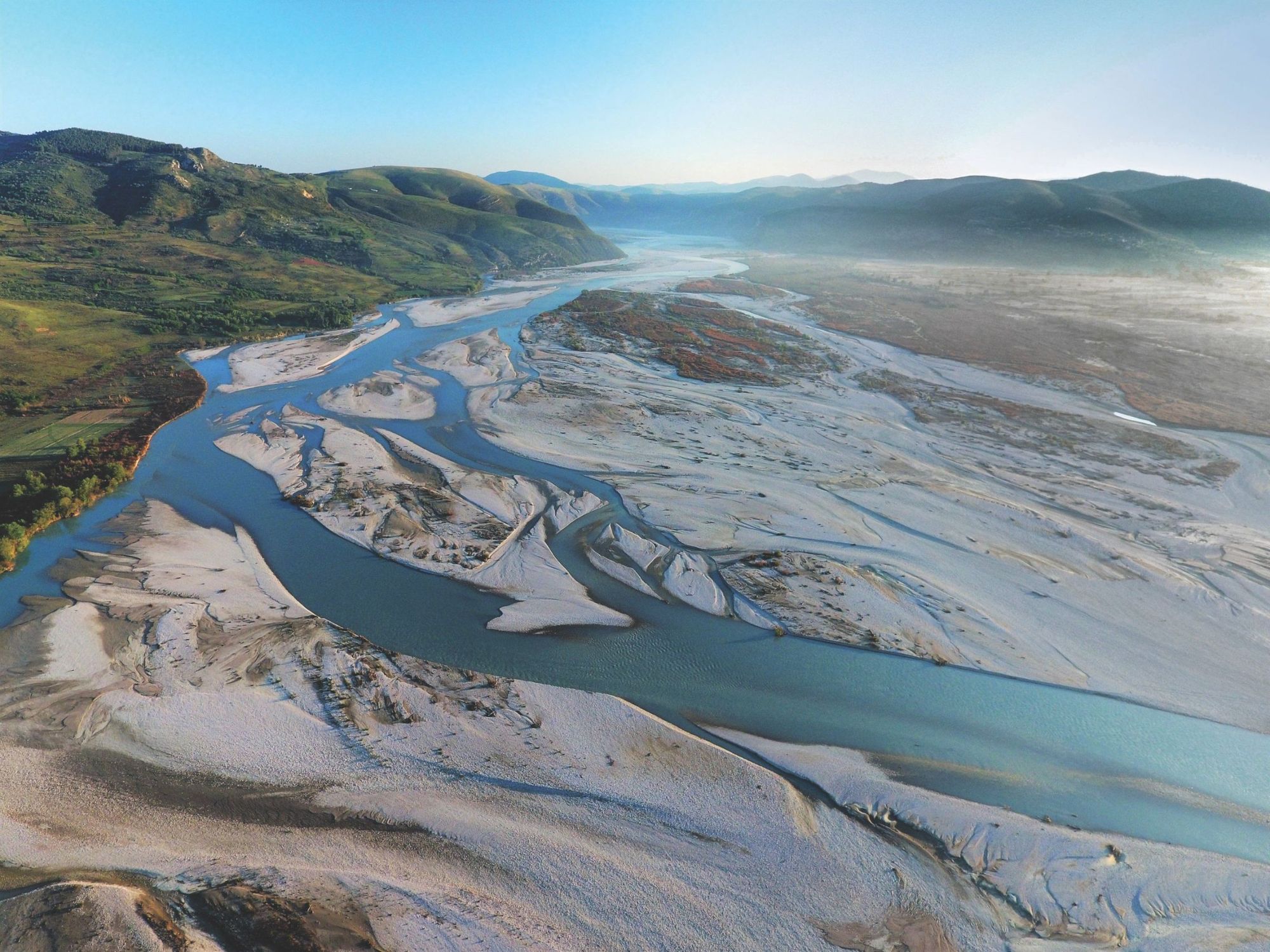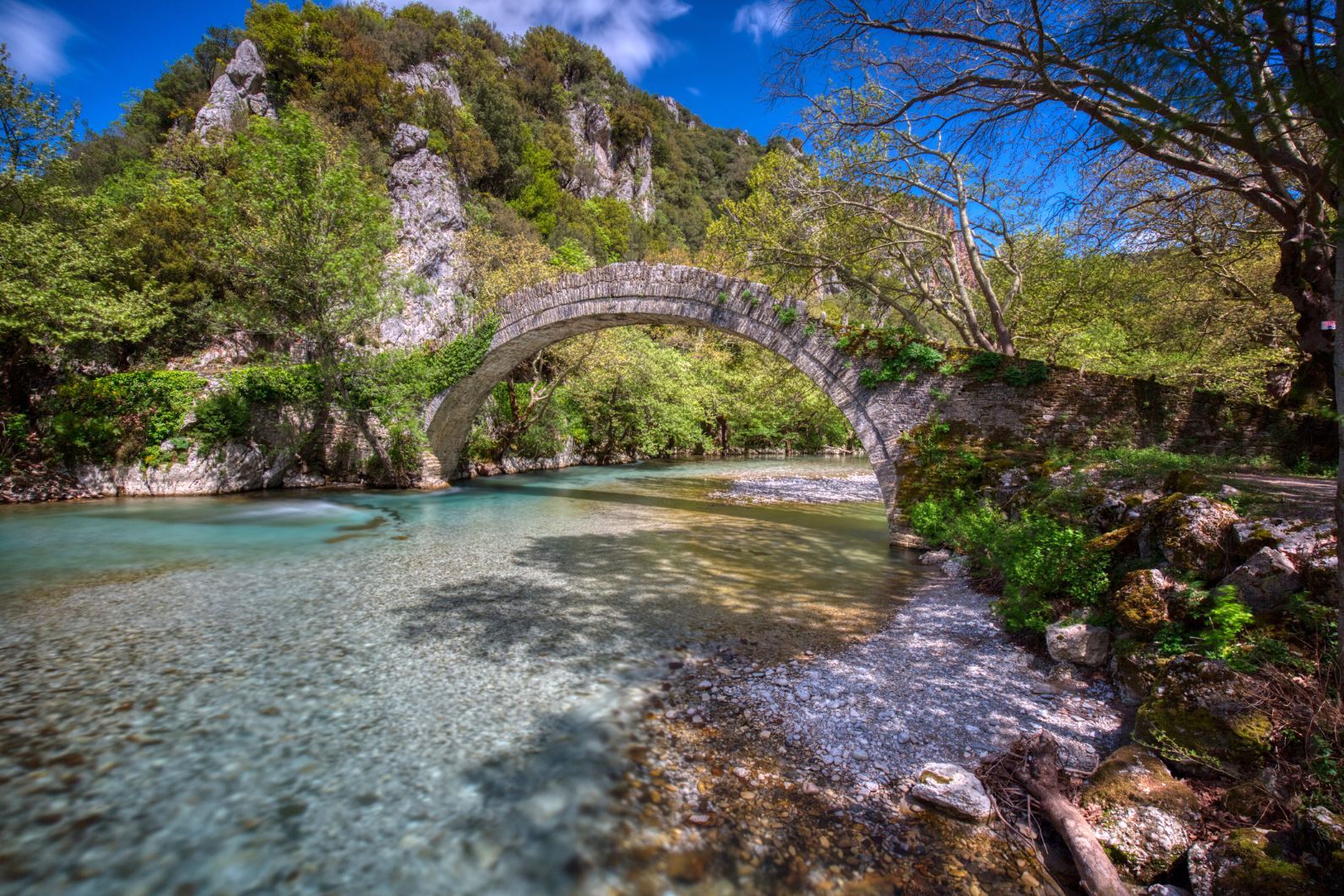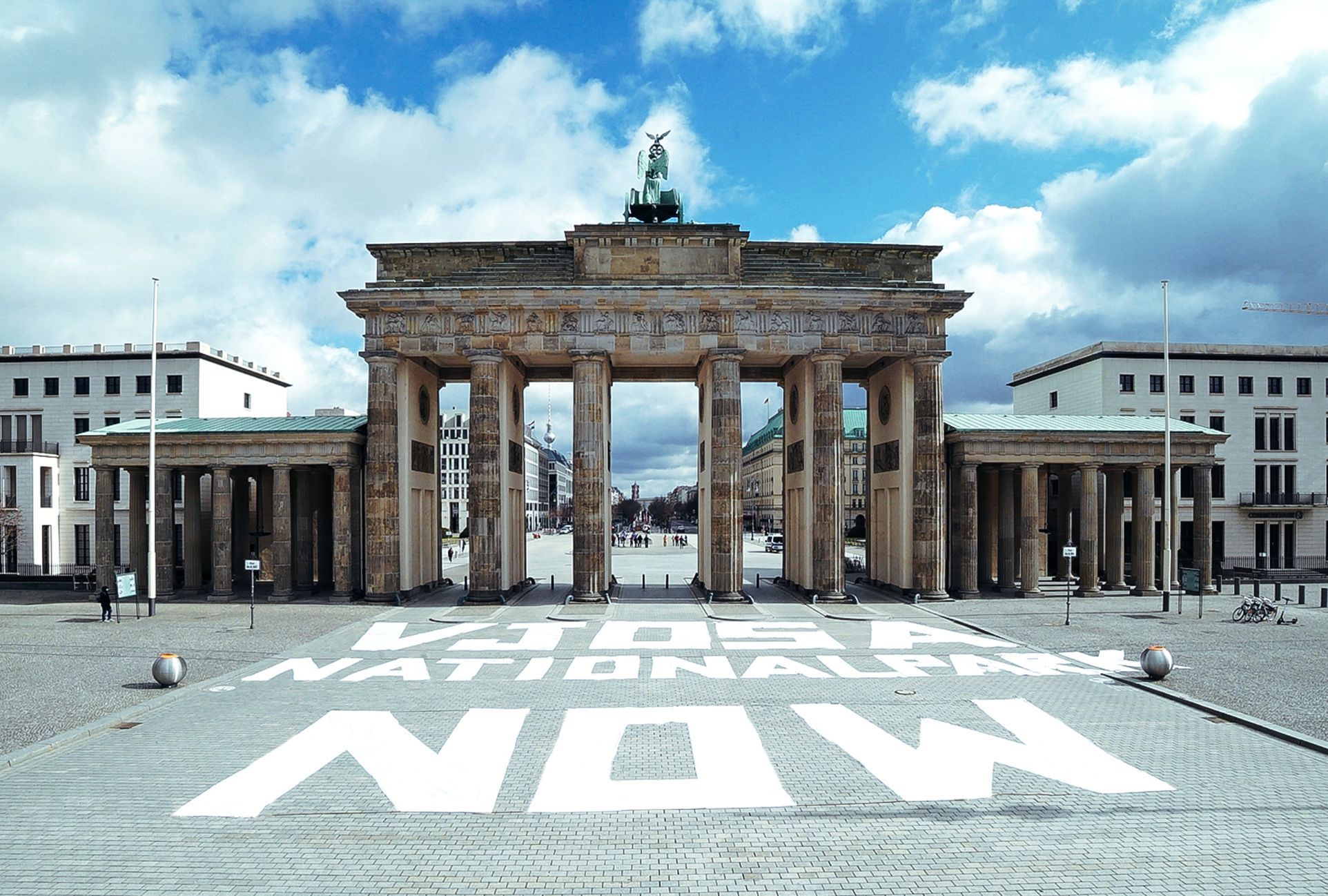The Vjosa is the last wild river in Europe. Running from its source in the Pindos Mountains of Greece, where it’s known as the Aoös, over the Albanian border and out to the Adriatic Sea, the river flows free for 270km, untamed and undammed, through spectacular valleys and canyons.
That may not be the case for much longer.
The Vjosa and its tributaries are currently being threatened by as many as 40 hydropower projects - 31 on the tributaries and nine on the Vjosa itself, any one of which would destroy the natural flow of the river. Despite several successful campaigns to stop or delay dam building on the Vjosa in recent years, hydroelectric projects continue to threaten the biodiversity along the river.
If you build one dam, you block the sediment and you block the fish. One dam can destroy it all.
That’s why, ahead of the Albanian elections on 25 April, conservationists are now campaigning to save the Vjosa, and declare the length of it Europe’s first ‘Wild River National Park’. The move would protect the ecosystem, and bring adventures, not dams, to the Vjosa, ending all prospective hydropower projects and opening up an array of ecotourism opportunities for locals on the trails and around the visitor centres that would be built in the park. A recent poll showed 94% of the Albanian public support the declaration of a National Park, and many have made their voices heard in the consistent protesting against the damming.
Ulrich Eichelmann is the CEO of RiverWatch, and a German ecologist at the forefront of the campaign in the Balkans to ‘Save the Blue Heart of Europe’.

“The Balkan Rivers are absolutely unique in Europe,” he says. “There are so many endangered species there. 69 fish species alone live only in that part of the world, and scientists keep finding new species every year. The Vjosa is a special case because of the dimensions of it, and the fact that except for two streams that are dammed, all the tributaries that run into the river are still free flowing. That’s even harder to find in Europe - a whole river system which is functioning.
“If you build one dam, you block the sediment and you block the fish. One dam can destroy it all.”
We have to fight global warming and biodiversity loss at the same time. These are equal problems in my eyes.
It’s a miracle that the river has survived through the “decades of destruction” Europe has seen in the past half-century, Ulrich says. This was initially due to the political isolation of Albania, and then after the fall of the Eastern Bloc, the country being seen as unstable for economic investments. Over time this changed, and in the past decade hydropower plans have flooded in. “Foreign consultants see the Balkan rivers as the last European market for them to do what they did before in other countries,” Ulrich says. “For them, it’s a playground to make business."
It’s easy to assume that hydropower is a clean, and desirable energy source. After all, it doesn’t involve the burning of fossil fuels. But a study from the Environmental Defence Fund (EDF) in 2019 found that actually, hydroelectric projects can end up producing even more greenhouse gases than fossil fuels in certain cases. From Ulrich’s perspective, the focus is more on the enormous harm being done to our biodiversity - often in the name of climate conservation.

“We cut down jungles in Borneo to produce palm oil which goes into the diesel for cars, to reduce their footprint,” he says. “We’re destroying rivers, increasing the loss of our biodiversity, and then we call that climate change positive? It makes no sense. We have to fight global warming and biodiversity loss at the same time. These are equal problems in my eyes.
“Our landscapes are empty, and in our rivers that’s reflected, but in the Balkans it’s different. The rivers are full of fish. We still have a chance here - not to make the same mistakes that we made in the 60s, 70s, 80s and 90s elsewhere.”
You need to use rivers like the Vjosa as a blueprint. Most of us don’t know what a functioning river looks like.
The European Union has taken note of the harm of damming. At the heart of their Biodiversity Strategy is the restoration of 25,000km of EU rivers to a free-flowing state by 2030, a project which involves the costly removal of dams built in previous decades. Wild rivers like the Vjosa are essential roadmaps for how to successfully restore a river in projects like this, Ulrich says: “You need to know what the goal is and what it should look like. You need to use rivers like the Vjosa as a blueprint to do it. Most of us don’t know what a functioning river looks like.”
There are currently around 28,000 hydropower plants in Europe. In Bosnia alone, there are 400 small hydropower projects planned on 244 rivers. If all went ahead, there would be a project on almost every river.
Campaigners have been successful in taking one previous damming project on the Vjosa to court in 2017, and in stopping another in its tracks in 2020. But Ulrich gives a wry smile when I ask if two hydropower projects seem to pop up for every one they defeat. The only way to protect the the river in the long term, he believes, is to declare the Vjosa Wild River National Park.

“There are a lot of categories of natural protection, but the National Park is the King of protected areas and the most appropriate one for the Vjosa,” Ulrich says. “A National Park also gives a framework for tourism. You could have guided tours and trails, and educational programs for students and for kids to learn what a wild river is. Tourists would need places to sleep and eat - all without damaging the area, of course - creating income for locals.”
The International Union for Conservation of Nature (IUCN), agrees with Eichelmann, also calling for a National Park. As has Leonardo DiCaprio, who recently posted a picture of Ulrich to his Instagram with the relevant hashtag. “Pretty cool, huh?” Eichelmann laughs. “He’s really helped get the message out beyond our bubble. He’s posted a few times. It’s important that someone like him doesn’t just post once and then go away. Then the politicians have the feeling they can’t get rid of him!” There have also been protests around Europe - in particular in Paris, Brussels, Berlin and, of course, more locally in Albania.
I’ve been in the region for 10 years now and I’m convinced if you gave them a vision, to be part of Europe’s first Wild River National Park, offering routes or rooms, they would stay.
There have been recent successes, too. On 25 March 2021, the European Parliament adopted the resolution to encourage Albania "to establish as soon as possible the Vjosa National Park, extending the whole length of the river."
The pressure is mounting on Albanian president Edi Rama, and the other candidates in the upcoming election, to commit to a National Park. Though there have been promising noises from politicians, protesters are concerned that after the elections, the government may instead give the river a lower designation, which would leave the river vulnerable, and call the issue done. “Nobody would come to see a ‘nature park’,” says Ulrich. “Most people don’t know what that is.”
He sees the election as a chance for the winning candidate to make an impact. “Southern Albania, where the Vjosa flows, is an area where a lot of people leave,” he says. “They move away to Tirana or abroad. I’ve been in the region for 10 years now and I’m convinced if you gave them a vision, to be part of Europe’s first Wild River National Park, offering routes or rooms, they would stay.”

Albanian locals don’t want the river dammed, nor do campaigners, ecologists or the EU. So one obvious question remains: why is the threat so persistent?
"I think it's because some Albanian leaders might still want to keep the door open for mega projects, and to make big money with it," says Ulrich. "They know the national park would spoil this vision."
The fact remains that globally, we are losing natural places at a rate never seen before in human history. For Eichelmann, the threats to the Vjosa are a consequence of a wider problem; a system in which the wellbeing of nature and our planet's biodiversity is being consistently overlooked for financial gain.
“It's so deeply rooted in our capitalistic system that you need to make money out of something,” Eichelmann says. “But you can only make money if you squeeze out nature or squeeze out people, and you can make the most money if you do both at the same time.
"Our strategy is to defend the last wilderness areas and hope that people get smarter and the system changes. If the system doesn't change, there's very little hope. We’ve won several cases, but if you take a wide-angle look at the world, it’s devastating. We are losing nature at a speed that's unheard of. That's why we need to preserve the Vjosa forever. That's why we need the Vjosa National Park."
Sign the petition and join the fight to get the #VjosaNationalParkNow
Lead image by Jay Basha / UnSplashed

